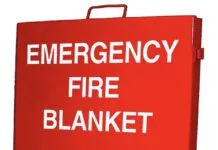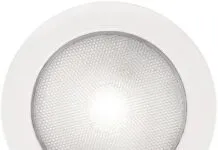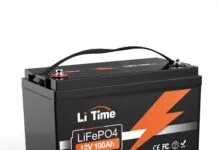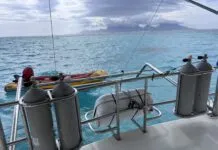Established industry standards enable consumers to know what exactly it is they’re buying. They set a benchmark for product quality, performance, and safety, allowing consumers a point of comparison. Compliance, certification or third-party testing are not required, but in the case of inverter-chargers, if a manufacturer can honestly claim that this has been done, it gives them a leg up on their competitors, in our opinion.
However, this is a tricky area, and rest assured, manufacturers play games with it. To help readers decipher the related alphabet soup, we offer this roundup of the terminology often used with inverter-chargers.
UL: Underwriters laboratories. A nationally recognized, in- dependent, nonprofit organization that writes standards and tests products for safety certification. (www.ul.com, ulstandardsinfonet.ul.com/)
ETL: originally ETL Testing laboratories, now Intertek Testing Services. A nationally recognized third-party product safety test lab. (www.intertek.com)
ISO: International organization for Standardization. The worlds largest developer and publisher of international product standards, ISO is a network of standards groups in 163 countries. (www.iso.org)
CSA: Canadian Standards Association. A nationally recognized and fully accepted, nonprofit standards group on a par with the UL or ETL. (www.csa.ca)
CE: The CE mark is the makers declaration that the product conforms to all applicable European Union standards. Any manufacturer can self- certify its products to CE.
ABYC: American Boat and Yacht Council. Develops safety standards for the design, construction, equipage, maintenance, and repair of small craft and their systems. ABYC Standard A-31 relates to inverter-chargers. (www.abycinc.org)
Listed or Certified to: These words imply either third- party testing of equipment to ensure compliance with industry-recognized and accepted performance and safety standards, or in the case of European products a manufacturer declaration of conformity to some pretty strict ISO Standards. These products often carry the logo of the certifying group, like those shown here for UL, ETL, and CSA listed products.
Designed to comply with: This is nothing more than the makers good word that on the drawing board, things looked great, but there is no assurance that the product actually complies with industry standards.
For more information on marine batteries and other electrical systems, check out Marine Electrical Systems: Panels, Monitors, Charging from Practical Sailor.





































